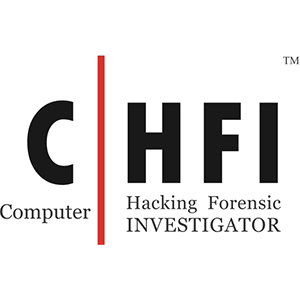Palo Alto Training – Learn Palo Alto Firewalls in 2025

Introduction: In an increasingly connected world, cyberattacks and cybercrimes are ever-present threats. Businesses, governments, and individuals constantly face risks related to data security and privacy. In this context, digital forensics plays a crucial role in understanding, resolving, and preventing cybersecurity incidents. The Certified Hacking Forensic Investigator (CHFI) certification is a recognized credential that trains […]

Introduction:
In an increasingly connected world, cyberattacks and cybercrimes are ever-present threats. Businesses, governments, and individuals constantly face risks related to data security and privacy. In this context, digital forensics plays a crucial role in understanding, resolving, and preventing cybersecurity incidents. The Certified Hacking Forensic Investigator (CHFI) certification is a recognized credential that trains professionals in digital forensic analysis, equipping them to investigate cybercrimes and address issues related to data breaches.
Digital forensics involves applying scientific techniques and specialized tools to collect, analyze, and preserve digital evidence as part of criminal investigations. It is used to investigate security incidents, cyberattacks, fraud, data theft, and various other cybercrimes.
The importance of digital forensics lies in the growing prevalence of digital evidence, including emails, computer files, online banking transactions, mobile device location data, and more. Through advanced tools and techniques, digital forensic experts can extract, analyze, and reconstruct events to solve criminal cases.

The Certified Hacking Forensic Investigator (CHFI) certification validates a professional’s ability to conduct digital investigations. This training helps experts develop forensic analysis skills and enables them to solve complex cybercrimes. A CHFI expert is trained to understand how attackers breach systems, what traces they leave behind, and how those traces can be used to reconstruct the sequence of events.
Key skills gained through CHFI certification include:
Digital investigations must adhere to strict procedures to ensure evidence remains admissible in court. CHFI experts are trained to follow the chain of custody, ensuring collected evidence is unaltered.
Additionally, CHFI professionals must understand regulations like the General Data Protection Regulation (GDPR) in Europe, which imposes stringent requirements for collecting and processing personal data. Awareness of these regulations is critical for conducting compliant investigations.
A primary goal of digital forensics is to understand how security incidents occur, including ransomware attacks, network intrusions, and phishing schemes. CHFI experts can identify vulnerabilities that enabled the attack and recommend measures to strengthen security. For instance, they might analyze system logs to find vulnerable entry points or detect anomalies in user behavior.
Digital forensics also enables organizations to respond swiftly to incidents. Rapid evidence collection and analysis help limit damage, stop ongoing attacks, and restore compromised systems.
Incident management is a fundamental aspect of digital forensics. CHFI experts are trained in crisis management, including coordinating response efforts to mitigate the impact of attacks. This involves implementing emergency response plans, identifying stakeholders, and effectively communicating with authorities.
Additionally, CHFI professionals can educate employees about cybersecurity best practices and data management to reduce the risk of future attacks.
As cyberthreats become increasingly sophisticated, the importance of digital forensics in cybersecurity continues to grow. Certified Hacking Forensic Investigators (CHFI) play a vital role in detecting, resolving, and preventing security incidents. With their technical expertise, regulatory knowledge, and crisis management skills, CHFI experts are essential in the fight against cybercrime. By investing in trained professionals like CHFI-certified experts, organizations can not only address past incidents but also strengthen their defenses to prevent future attacks.
Get certified with industry-leading cybersecurity certifications from EC-Council, PECB, Palo Alto Networks, and more.

Learn from world-class instructors Collaborate with top professionals Advanced training...

The CEH is the world's leading cybersecurity certification, recognized by...

Onsite training course Led by an instructor Interactive sessions

Asynchronous, self-study environment Video-streaming format Flexible learning schedule
Adding {{itemName}} to cart
Added {{itemName}} to cart

